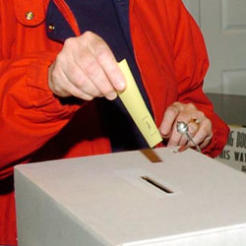As the election looms large, Richard Weaver lobbies for ten improvements that would help charities survive the next five years.
With an election imminent, now is the time to challenge the political parties on what they will do for the charity sector. There does need to be an appreciation amongst the politicians that charities and civil society contribute enormously to our quality of life. Politicians need to recognise the sometimes unintended consequences of the plethora of legislation directly affecting charities and their day-to-day work, for the benefit of the general public.
Charities must remain apolitical. On the other hand I can say what I like. Those who know me would say ‘no change there then’, so here we go with my charity manifesto for the next parliament:
- The next government must recognise that enacting legislation on businesses often does have a direct, if unintended, impact on civil society. The sector is therefore to be adequately consulted on new legislation so that it is not adversely affected, rather than expecting the sector to campaign in individual areas.
- Government procurement rules and red tape hampers the ability of small and medium-sized charities to compete for funding. Procurement exercises should be made fairer and more transparent to ensure that tendering is conducted on a level playing field. The true cost of providing the tendered service should be disclosed in tender documents, rather than just the bid price.
- Stability of funding should also be tackled to ensure that charities are sustainable in their activities. This requires an acceptance, from the authorities who have the duty to provide the services, that charities are often specialist, quality providers.
- For those charities that are required to report on the funding they receive, efforts have been made to clarify the reporting requirements, but more needs to be done to ensure that the guidance is followed. Requiring charities to fund third party reports out of their own resources, rather than from the grant funding is an unfair charge on charities. Funders, if they want compliance reports, should pay for them.
- Gift aid should be presumed to apply and the individual donor required only to sign by exception if they do not pay UK tax. Gift aid will then be set at a predetermined standard rate.
- There must be a greater recognition that trading activity to supplement income and provide additional funding to support charitable activities should be treated differently. For too long charities have had to jump through regulatory hoops in adopting group structures to comply with legislation or be tax-efficient. Government should seek to either remove the need for separate trading companies in certain situations or increase the levels by which charities can trade within the charity. Additional disclosure of those trading activities within the statutory accounts would suffice. This will provide savings on additional compliance fees, finding additional directors, artificially maintaining separate accounting records and the inevitable funding complications for trading subsidiaries that require all profits, ie cash, to be gift-aided in order to avoid corporation tax.
- Filing deadlines for accounts should be simplified. All charities shall be required to file their accounts by the same deadline.
- Further exemptions should be introduced to simplify inter-charity and inter-group transactions for taxation purposes.
- There should be a review of the current list of registered charities to identify any that have not conducted sufficient activity within the last two years. The regulator should work with the trustees to ensure that the monies held for charitable purposes are being applied appropriately for public benefit on a timely basis.
- We advocate a ‘one stop shop’ list of rules and regulations that charities of different sizes need to conform to in the day-to-day activities of the charity, its governance, reporting, employment duties, etc, so that trustees and management are clear. Bombarding organisations with legislation has led to a very confused state of affairs that often deters able people from contributing via trusteeship.
Here endeth my summary manifesto. That’s taken a number of hours, two coffees, a taxi ride, required a new television and the outsourced cleaning of my moat as I did not have time myself. Where is that expense claim for?
Richard Weaver is a partner at haysmacintyre









